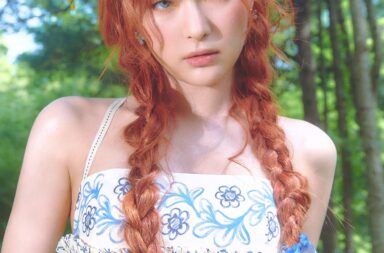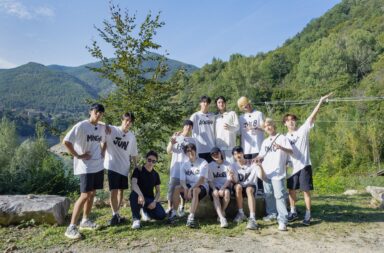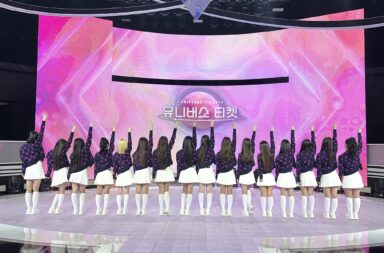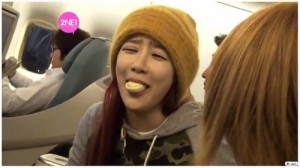 In the K-pop world, variety is used to portray idols in a more relatable and likable light beyond their idealistic and perfect, albeit distant idol facade. Variety shows allow and encourage idols to show their imperfections or minimal flaws, be it their gluttony, bad habits, or physical weaknesses. Of course, these flaws are almost never really that severe, being negligible or even seemingly-formulated, because an idol wants to look as perfect and well-rounded as possible. However, these little quirks are highlighted and exposed to allow fans to relate to these idols, to help fans form a more genuine bond with their bias, since nothing screams true love more than loving someone for their flaws. Whether we think about it or not, these flaws help shed away an idol’s distant stage persona, which is usually too perfect to be deemed believable. These little quirks help show idols more as real people and less as distant figures to be doted upon.
In the K-pop world, variety is used to portray idols in a more relatable and likable light beyond their idealistic and perfect, albeit distant idol facade. Variety shows allow and encourage idols to show their imperfections or minimal flaws, be it their gluttony, bad habits, or physical weaknesses. Of course, these flaws are almost never really that severe, being negligible or even seemingly-formulated, because an idol wants to look as perfect and well-rounded as possible. However, these little quirks are highlighted and exposed to allow fans to relate to these idols, to help fans form a more genuine bond with their bias, since nothing screams true love more than loving someone for their flaws. Whether we think about it or not, these flaws help shed away an idol’s distant stage persona, which is usually too perfect to be deemed believable. These little quirks help show idols more as real people and less as distant figures to be doted upon.
Thus variety plays a very important role in the world of K-pop, since they allow the paradox of a flawed — and thus a more realistic — idol to be seen. In the vastly different world of K-variety, these so-called idol flaws, as slight as they are, are spun around in ways that make them amusing, and idols are often teased for these “imperfections” as running gags or jokes — just count how many times Yuri‘s smile lines are mentioned in Invincible Youth. Variety shows provide chances for idols to truly express themselves in ways not possible in their other forms of promotion, and considering the highly regimented and restricting nature of the K-pop industry, this is very significant.
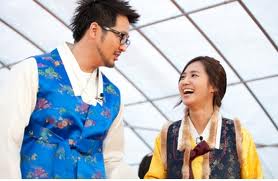 Since variety shows provide one of the only chances for the real people behind idols’ restrictive masks to be shown, many use variety as a way to judge idols’ true characters. And these judgements are mostly justified; variety shows are significantly less filtered and restrictive, and an idol is more encouraged to think for themselves and react accordingly to a situation. Genuine praises and more reliable observations of an idol’s benevolence, etiquette, or character are worth a lot more when made under the context of variety, since we are exposed to a less censored version of an idol. In this way, variety shows are like the behind-the-scenes videos of K-pop. It is assumed everything recorded through these lens, these supposedly candid moments, are spontaneous and unplanned. It is assumed that everything an idol does when under these lens are done with their own free will, that everything an idol does is because an they choose to do it, not because a script or a set of instructions forces them too.
Since variety shows provide one of the only chances for the real people behind idols’ restrictive masks to be shown, many use variety as a way to judge idols’ true characters. And these judgements are mostly justified; variety shows are significantly less filtered and restrictive, and an idol is more encouraged to think for themselves and react accordingly to a situation. Genuine praises and more reliable observations of an idol’s benevolence, etiquette, or character are worth a lot more when made under the context of variety, since we are exposed to a less censored version of an idol. In this way, variety shows are like the behind-the-scenes videos of K-pop. It is assumed everything recorded through these lens, these supposedly candid moments, are spontaneous and unplanned. It is assumed that everything an idol does when under these lens are done with their own free will, that everything an idol does is because an they choose to do it, not because a script or a set of instructions forces them too.
However, this is a double-edged sword. Just like how a good deed done is worth a lot more for an idol in variety, if anything truly negative or controversial is done by an idol in variety, it would surely cause a much bigger effect for the same reasons. When an idol does or says anything controversial in variety, it is assumed that the snide comment or action was purposeful and reflective of an idol’s true character. Thus the effect and possible consequences of a mistake in variety so much more severe. The mistake would no longer just be reflective of an idol’s image and would thus be harder for the idol to shed or brush away. For these reasons, idol controversies often find their root or at least some “evidence” in variety, simply because it is assumed that the personalities portrayed in variety are reflective of the real personalities of the idols or the entertainers behind them.
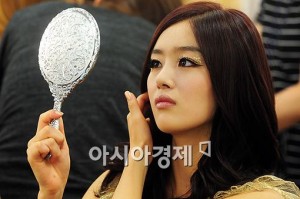 But what an assumption to make. Quite obviously, there are clear flaws in this mindset. For one, how do we truly know that these personalities being portrayed are reflective on an idol’s true character? Variety shows are only a chance for an idol to showcase their true character; it doesn’t necessarily mean that an idol would truly show their true nature just because they’re given the chance to. Scripting does exist and is actually unfortunately very omnipresent in K-variety. Scripting exists through characters, actions, and even dialogue so assuming that the personalities shown on variety are genuine just because of the less restrictive atmosphere is quite naive. While an entertainer’s character often relates to their own personality, the character could be highly exaggerated and not at all a realistic portrayal of an entertainer in real life, seen by Sunhwa‘s overly naive and airheaded character she used at the beginning of her career. Moreover, while variety is less filtered and more loose, it is still thoroughly edited, meaning more unpleasant moments could be purposefully left out. This further hampers the objectivity of variety shows when judging an idol’s true personality.
But what an assumption to make. Quite obviously, there are clear flaws in this mindset. For one, how do we truly know that these personalities being portrayed are reflective on an idol’s true character? Variety shows are only a chance for an idol to showcase their true character; it doesn’t necessarily mean that an idol would truly show their true nature just because they’re given the chance to. Scripting does exist and is actually unfortunately very omnipresent in K-variety. Scripting exists through characters, actions, and even dialogue so assuming that the personalities shown on variety are genuine just because of the less restrictive atmosphere is quite naive. While an entertainer’s character often relates to their own personality, the character could be highly exaggerated and not at all a realistic portrayal of an entertainer in real life, seen by Sunhwa‘s overly naive and airheaded character she used at the beginning of her career. Moreover, while variety is less filtered and more loose, it is still thoroughly edited, meaning more unpleasant moments could be purposefully left out. This further hampers the objectivity of variety shows when judging an idol’s true personality.
Furthermore, idols are trained to be wary of the camera, treating it as a best friend and an arch enemy at the same time. Even in the best case scenario where a variety uses as little scripting as possible, idols would still be wary of the camera following them around. While the environment is significantly looser and more comfortable compared to the environment of a formal interview or drama, idols would still bend their personality to cater to the camera. Idols would try to show their better sides in front of the camera, so in the end, we’d still have a distorted perspective of an idol.
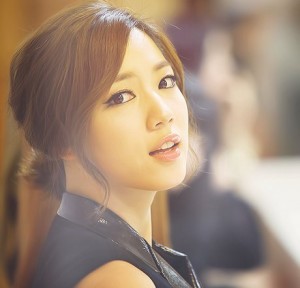 For these reasons, I find most variety controversies to be largely exaggerated or unneeded. I find it unnecessary for the likes of Eunji or Gyuri to be criticized for being “rude” on variety when their actions could very well be scripted or done simply for amusement. Doing so is almost like criticizing an actor or actress for playing an unpleasant character; both parties are just simply catering for the camera with the goal to entertain. The only real difference between taking up a character in variety and acting is variety’s more realistic setting and consequently, the assumption that everything that happens in variety is “real.”
For these reasons, I find most variety controversies to be largely exaggerated or unneeded. I find it unnecessary for the likes of Eunji or Gyuri to be criticized for being “rude” on variety when their actions could very well be scripted or done simply for amusement. Doing so is almost like criticizing an actor or actress for playing an unpleasant character; both parties are just simply catering for the camera with the goal to entertain. The only real difference between taking up a character in variety and acting is variety’s more realistic setting and consequently, the assumption that everything that happens in variety is “real.”
Furthermore, I find using variety as concrete evidence to fuel idol hate even more discrediting. Take for example, the somewhat recent T-ara Debacle, where variety stills were used to serve as “evidence” of the girls of T-ara bullying now ex-member Hwayoung. While I still believe there was turbulence within T-ara, I found these stills to be largely misleading and greatly irrelevant. Not only were these stills and clips taken severely out of context, but they could very well have been scripted moments as well. Since let’s be honest here, if there were ever any ill feelings between members, they would never (or at least should never) allow it to be shown in the presence of a camera.
Unfortunately, not only are variety controversies so much more misleading and subjective, but their effects could be more damaging as well. To put it simply, the controversy would be on a much more personal level in variety with solely the idol to blame. The attacks would no longer be on an idol’s company or an idol’s image, but rather on the idol themselves, dirtying their reputation twofold. And as a result of the high consequences of variety controversies, idols are even more discouraged from allowing their true personalities to show, fearing being criticized themselves. Consequently, these idols bottle up and resort to scripting, thinking it would be better to be called boring than to have their real personalities be criticized.
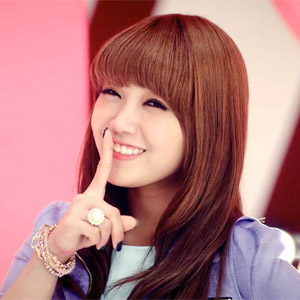 Keep in mind that I’m not at all saying that no idols are truly genuine on variety, nor am I saying that we should forgive or ignore all the things idols say in variety, since that mindset is just as naive. There are truly those who truly want to express themselves on variety and share their genuine disposition without much reserve, and I applaud them for it. And on the other side of the situation, there are those whose comments and actions truly do deserve criticism for being ignorant, tactless, or unprofessional.
Keep in mind that I’m not at all saying that no idols are truly genuine on variety, nor am I saying that we should forgive or ignore all the things idols say in variety, since that mindset is just as naive. There are truly those who truly want to express themselves on variety and share their genuine disposition without much reserve, and I applaud them for it. And on the other side of the situation, there are those whose comments and actions truly do deserve criticism for being ignorant, tactless, or unprofessional.
However, my point is that one shouldn’t see everything that happens in variety as concrete or completely reflective of the truth, since what is actually shown could actually be just as manipulated as an idol’s manufactured image. All of the conclusions we make about variety are all really just assumptions, and it’s subjective whether we like an idol or not or whether we find an idol cute or funny. We can choose to dislike an idol based on the personality they show on variety, faulting them for their lack of understanding or likability. But we really should avoid equating variety with the truth. While it’s a better source than others in determining our biases’ personalities, it’s not concrete evidence and shouldn’t really portrayed as such.
But what do you think Seoulmates? How much of idols’ personalities or views do you think are reflected on variety shows?
(KBS, SBS, CCM, DSP, YG)
